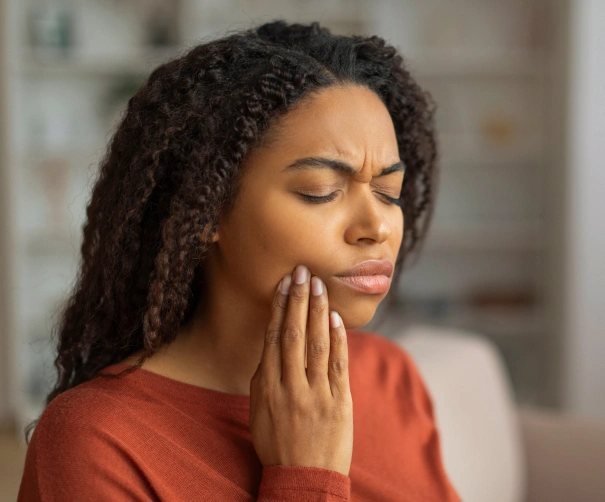123 W. Willow Street Chippewa Falls, WI 54729

Solutions for Jaw Pain and TMJ Issues
What You Should Know About TMJ Disorders
Symptoms of TMJ Disorders
- Jaw pain or stiffness that worsens with use
- Clicking, popping, or grinding sounds when opening or closing your mouth
- Headaches or earaches caused by jaw tension
- Difficulty chewing or fully opening your mouth
- Facial soreness or pressure near the jaw joint
What Causes TMJ Disorders
Teeth grinding or clenching
Stress
Injuries
Arthritis
Bite problems or misaligned teeth
How TMJ Disorders Are Treated
TMJ treatment focuses on relieving discomfort, improving jaw movement, and preventing further strain on the joint. Care typically starts with conservative options aimed at restoring natural function.
Oral appliances, such as night guards or stabilization splints, are often recommended to reduce pressure on the joints and protect teeth from grinding or clenching. In some cases, therapy may include gentle bite adjustments, orthodontic care, or prosthetic solutions to improve alignment and balance. For patients with severe or persistent symptoms, advanced treatments such as injections or surgery may be considered.
Self-care plays an important role in managing TMJ disorders. Eating soft foods, avoiding habits that stress the jaw, practicing relaxation techniques, and applying hot or cold packs can all provide relief. Your dentist may also recommend specific exercises to strengthen and relax jaw muscles. Over-the-counter pain relievers can help reduce discomfort, and prescription medication may be suggested if symptoms persist.
